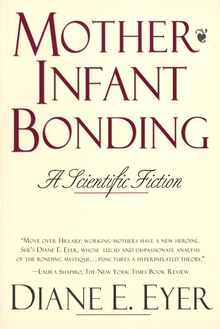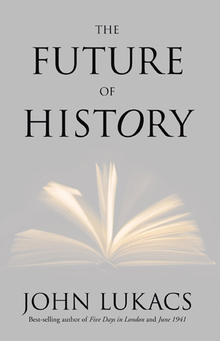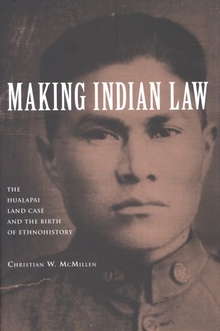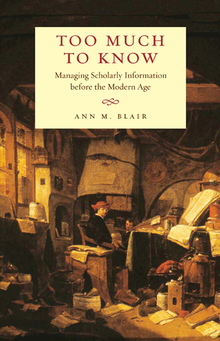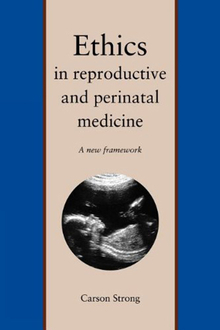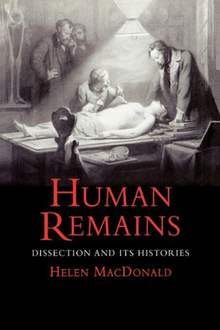Mother-Infant Bonding
WARNING
You are viewing an older version of the Yalebooks website. Please visit out new website with more updated information and a better user experience: https://www.yalebooks.com
A Scientific Fiction
Diane E. Eyer
In this absorbing book, Diane E. Eyer traces the history of the bonding myth and explains its continuing popularity despite its demonstrated lack of validity. Most important, she shows how it reflects a disturbing tendency in our society to accept "scientific" research without question--and without awareness that it can be distorted by professional agendas and public demands. Eyer argues that the concept of bonding was developed at a time when hospitals were losing their appeal for many women who wanted to deliver their babies in birthing centers or at home. Hospitals seized on the bonding idea as a way to make their services more attractive to pregnant women and to reassert medical authority over the birthing process by regulating the bonding procedure. The story of bonding, says Eyer, is one example of the way that the scientific and medical communities have deluded women (and themselves) into accepting dicta based on fiction and not fact.
"This readable book brings together material not assembled elsewhere and makes excellent points. I strongly recommend it."—Dorothy C. Wertz, coauthor of Lying In: A History of Childbirth in America
"Clear and compelling. It will make an important mark."—Michael Lamb, National Institutes of Health
"Drawing upon her extensive knowledge of the literature and many interviews, . . . Eyer shows how the concepts of infant attachment and bonding developed."—Booklist
"A hybrid of history, philosophy, and sociology of science . . . accessible to a variety of readers, especially undergraduates."—David L. Wheeler, The Chronicle of Higher Education
"Move over Hillary: working mothers have a new heroine. She's Diane E. Eyer, whose lucid and dispassionate analysis of the bonding mystique not only punctures a hyperinflated theory but beautifully skewers those experts on motherhood who make no distinction between science and wishful thinking."—Laura Shapiro, New York Times Book Review
"Ms. Eyer's revisionism serves as a reminder that not all studies and statistics come wrapped in verifiable truth."—Christian Science Monitor
"In this splendidly wide-ranging and well-written book, [Eyer] asks why such evidently flawed research continued to be uncritically applied for an entire decade. Her answers draw on history, sociology, and the popularization of science."—Anne Karpf, New Statesman & Society
"[Eyer's] extremely well argued book is extensively referenced presenting the arguments with great incisiveness. It is bound to cause controversy and what is most important of all, debate, of an issue which has considerable social and practical importance."—Journal of the Institution of Health Education
"In her fascinating new book, Mother-Infant Bonding: a Scientific Fiction, Diane E. Eyer, a psychologist, explains why this spurious idea was so eagerly embraced and why it thrives years after more sober investigations have discredited it."—Madeline Drexler, Boston Globe Magazine
"Stimulating, well researched, and easy to read, the book highlights the dangers of research fashions . . . If you work with children and families it makes you think."—Judith Trowell, British Medical Journal
"The book—an in-depth look at bonding research that is not for the casual reader—traces how researchers 'discovered' a mysterious bonding process that supposedly cements mothers to newborns like glue."—M.P. Taylor, Dallas Morning News
"Armed with [an] arsenal of evidence, Eyer vents her rage that hospitals did not attack the 'bogus notion' of bonding for the bad science that it was. . . . I heartily endorse the author's plea."—Peg Padnos, Wilson Library Bulletin
"Even hardened sociologists benefit from [this book's] fresh and detailed illustrations. As a social documentary, the book has something for us all. . . . Eyer's account is of impressive range, drawing from many intellectual streams including psychology, social history, feminism, sociology, the philosophy of science and psychoanalysis. It is informative at a descriptive level and has an accessible style. It will, I feel, be particularly helpful for medical, nursing and midwifery educators, policymakers and practitioners."—Ruth Wilkins, Sociology of Health & Illness
"Eyer knowledgeably . . . weaves an elaborate and detailed account of the fluid ideological, political, professional, and economic terrain that gave life to the scientific fiction of bonding. . . . Her account of mother-infant bonding is a commanding empirical account of the power of scientific discourse and the ultimate cultural authority bestowed on scientific experts. . . . [Her] book will . . . be useful for those interested in the processes by which professional jurisdictions are carved out and . . . [for] feminist scholars interested in the interplay between the ideological constructions of femininity and motherhood."—Kristin K. Barker, American Journal of Sociology
Publication Date: December 11, 1993

